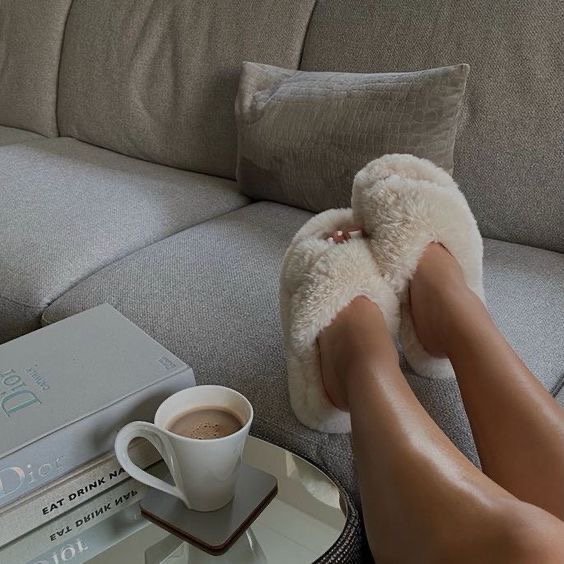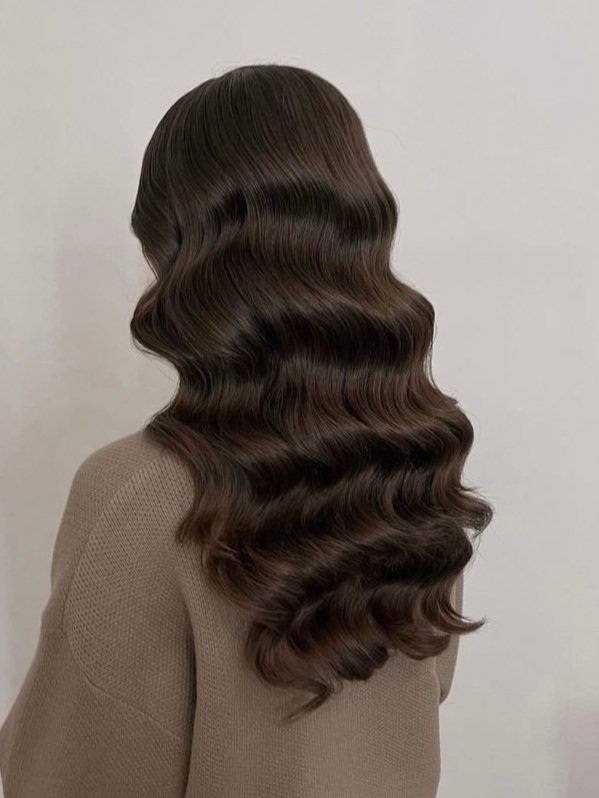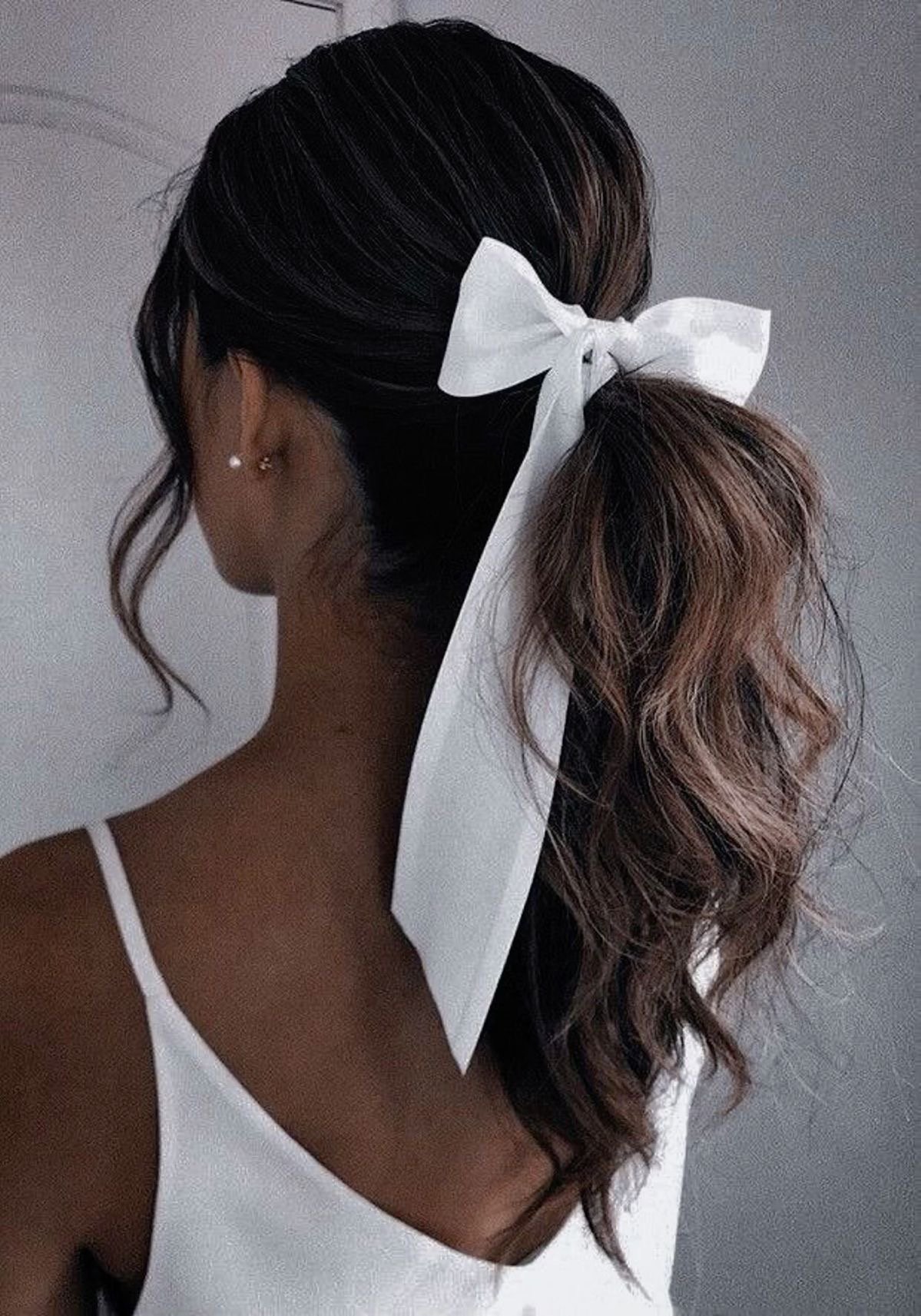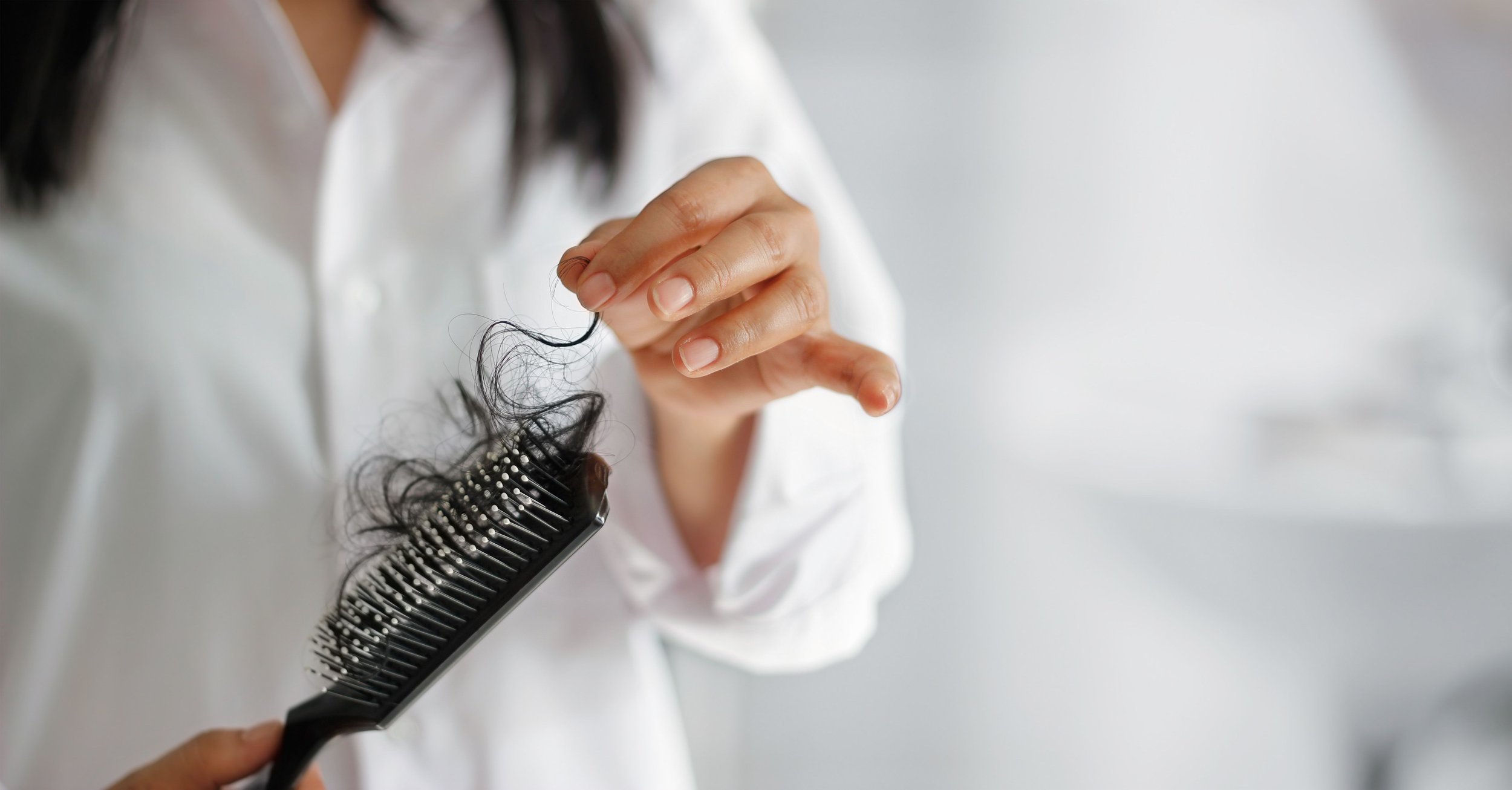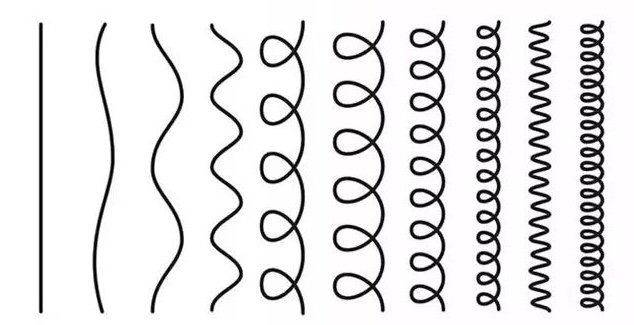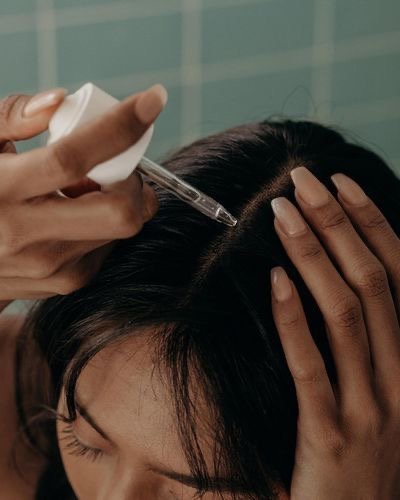Self-care sunday
Start your week with the best mindset. Getting into a routine of good habits can make for a structured and productive week ahead. Many of us neglect our self-care needs, leaving us feeling drained.
Start your week with the best mindset. Getting into a routine of good habits can make for a structured and productive week ahead. Many of us neglect our self-care needs, leaving us feeling drained. We find taking some ‘me-time’ on a Sunday evening the most effective way to feel pampered and relaxed.
Here are our top 5 essentials for the perfect evening of self-care…
1- Hair Care Essentials
This is the perfect opportunity to give your hair that extra special treatment. Change up your normal routine with a mask, treatment or serum for a healthy, glossy finish.
Looking for a luxury range, personal to each hair type? We recommend Kerestase! Full of natural ingredients and nutrients.
3 - Nothing beats a good book!
Set yourself up for a week of progress and positivity.
Relax and unwind with a fiction book to escape the real world and everyday norms. Or maybe you prefer a book about manifestation and unlocking a more positive mindset.
Reading a good book is the best way to reduce stress and increase concentration.
5- COMFORT
Light your favourite candle and put on your silk pyjamas for the ultimate self-care evening!
Hair Trends of 2024 | The best hair styles to try this year
Looking to change up your look this summer? Here are some of our favourite hair trends of 2024!
Looking to change up your look this summer? Here are some of our favourite hair trends of 2024! Whether you’re looking for a complete re-style or just want some cute, trendy accessories, keep reading to find out more…
90’s Bob
The 90’s style bob is back and we couldn’t be happier! Made famous by the likes of Jennifer Anniston playing ‘Rachel’ in Friends, this classic style embodies a level of effortless sophistication.
Inspired by Old Hollywood Glamour, this style is being brought back to our screens by model, Hailey Beiber and actress, Sydney Sweeney.
This rebellious style is full of body and is sure to enhance your facial features!
Bombshell Bangs
After recently supporting the Eras Tour, Sabrina Carpenter is a global sensation!
Her signature bombshell bangs are brought to life by her sun-kissed highlights.
This glam, retro look is sure to dominate in 2024!
Expensive Brunette
We’re sure you’ve come across this trend when scrolling on TikTok, the ‘expensive brunette’ trend is here to stay and here’s how to get it…
1- Keep on top of your trims - Getting rid of those dry ends is sure to improve the health and appearance of your hair.
2- Add moisture! Invest in moisture-rich products such as masks and serums, this will add a glossy high-end shine to your hair whilst also maintaining the condition.
3- Keeping up with your colour appointments. Old, grown-out colour looks uncared for and can make your cut look lifeless.
bronde
The fusion between blonde and brunette. This look can be achieved by adding both highlights and lowlights to achieve a unique overall colour.
Can’t decide whether you are more suited as a blonde or brunette? This could be the perfect colour for you!
The beauty of this colour is that you can have it toned more on the warmer or cooler side depending on preference.
Hair Bows
Recently seen on Lana Del Rey at the Grammy’s, hair bows are becoming the accessory of 2024.
Not only are bows a great way to keep hair out of your face, they also give that soft, feminine touch to any look.
Celebrating Healthy low maintenance hair
In the dynamic landscape of 2024, it's not just about trends; it's about celebrating healthy, sustainable, and personalized styles that resonate with who you are. Let's dive into the key elements shaping the hair scene this year:
Healthy Hair, Happy Life:
Timeless beauty is reflected in the vitality of your hair. In the year 2024, the focus revolves around nurturing your locks internally. Choose hairstyles that enhance this aspect, embracing the wellness of your hair as the prevailing trend.
Sustainable Shades for You:
Shades that speak your language.
This year, sustainable hair colours are stealing the spotlight. Find hues that not only suit your complexion but also align with your lifestyle. Eco-friendly dyes are the go-to for those looking to make a statement with a conscience.
Professional Care at Home:
Salon-worthy care, anytime. Elevate your hair routine with professional-grade products that cater to your specific needs. A well-crafted at-home regimen ensures your locks receive the attention they deserve, maintaining that fresh-from-the-salon allure.
The Bounce is Back:
Sexy, bouncy blowouts. A timeless classic, the art of a perfectly styled blowout is making a triumphant return. Add volume and allure to your mane with this evergreen trend that effortlessly transforms your look from casual to chic.
Layers that Flatter:
Face-framing and long layers for the win. A hair cut which accentuates your features. Layers are not just a trend; they're a personalized touch that adds dimension and character to your hairstyle.
Treats and Trims:
Regular trims for everlasting beauty. Indulge in regular trims to keep your hair in optimal condition. Combine this with rejuvenating treatments to ensure your locks remain healthy and vibrant.
Night Serums for Overnight Magic:
Wake up to gorgeous hair. Night serums have become the secret weapon for luscious locks. Treat your hair to overnight care that revitalizes and replenishes, leaving you with a morning-ready mane.
As we navigate the trends of 2024, remember that your hair is a canvas waiting to showcase your unique style. Embrace these trends with confidence, making each strand a statement that speaks volumes about you.
Navigating Menopause: A Comprehensive Guide to Hair Care and Its Implications
Experiencing menopause is a natural and inevitable phase of a woman's life, marked by a series of hormonal changes that can have far-reaching effects on various aspects of health. One often-overlooked aspect is its impact on hair health. Just as menopause changes mood, sleep patterns, and metabolism, it can also lead to shifts in the texture, thickness, and overall condition of your hair.
Menopause is a natural stage in a woman's life. While menopause brings about various changes in the body, one area often overlooked is its effect on the hair. Fluctuating hormone level menopause can lead to significant changes in hair texture, thickness, and overall hair health. In this blog post, we will explore how menopause can affect your hair and provide practical hair care tips to help you manage these changes.
Thinning Hair:
One of the most common hair-related issues during menopause is thinning hair. As estrogen levels decline, hair follicles may become smaller, resulting in hair that appears thinner and less voluminous. Additionally, reduced estrogen can lead to a shorter hair growth cycle and delayed hair regrowth. To address thinning hair, consider these tips:
- Ensure you acquire an adequate supply of magnesium, as a deficiency in this essential mineral can hinder the growth of hair follicles, resulting in weaker and thinner hair strands.
- Opt for volumising shampoos and conditioners to give your hair a fuller appearance.
- Use styling techniques like blow-drying and volumising products to add lift and body.
- K18 will be your friend.
Maturing Hairline:
Some women may experience thinning of their hair, while others may notice changes in their hairline with menopause, most women’s hair does begin to thin out overall. Most women who experience hair loss initially notice thinning around the hairline and near the temples – which is referred to as a maturing hairline.
There is encouraging news: you have the potential to revitalize your hair and minimize hair loss. By making certain adjustments in your lifestyle, such as modifying your diet, increasing physical activity, effectively managing stress, or trying different hair products and supplements, you can embark on a journey towards better hair care.
Dryness and Brittle Hair:
During menopause, decreased estrogen levels can reduce sebum production, producing dry and brittle hair. This lack of moisture can make the hair prone to breakage and split ends. To combat dryness and maintain healthy hair:
- Use moisturising shampoos and conditioners specifically formulated for dry or damaged hair.
- Visit the salon for our intense moisture treatment.
- Limit the use of heat styling tools and protect your hair with heat-protectant oil and creams when styling.
- Incorporate hair masks or deep conditioning treatments into your hair care routine to provide added hydration.
- Avoid over-washing your hair, as it can strip away natural oils. Aim to wash every other day or as needed.
Changes in Texture:
Hormonal fluctuations during menopause can cause changes in hair texture, often resulting in coarser or frizzier hair. Embracing your new hair texture and adjusting your routine can help you manage these changes effectively:
- Use anti-frizz or smoothing products to tame.
- Consider haircuts or styles that work well with your new texture, such as layers or a shorter length.
- Experiment with different styling techniques, such as using a diffuser or curl-defining products to enhance your natural texture.
- Incorporate gentle brushing techniques and wide-toothed combs to minimise breakage and frizz.
Scalp Health:
Menopause can also impact the health of your scalp, leading to dryness, itchiness, or an increase in dandruff. To maintain a healthy scalp:
- Avoid using harsh shampoos or styling products that can strip away natural oils and irritate the scalp.
- Gently exfoliate your scalp once a week to remove buildup and promote better circulation.
- Incorporate scalp treatments or oils containing ingredients like tea tree oil or aloe vera to soothe and moisturise the scalp.
- Maintain a balanced diet of vitamins and minerals to promote overall hair and scalp health.
Conclusion:
To summarise, we've explored the importance of understanding this life change.
Menopause is a significant life transition for women that can change various aspects of hair health. Understanding how menopause affects your hair and implementing the appropriate care routine can help you manage these changes.
Together, let's we can help one another with relieving some of the issues we may face.
If you have any tips, please share them below, and if you liked this blog post, please share with a friend.
These Habits Are Killing Your Hair
There are a lot of misconceptions about hair care knowing what ruins your hair can be the key to you reaching your hair goals.
Several things can damage and ruin your hair. Here are some of the most common culprits:
📌 Overwashing: Overwashing and under-washing: Washing your hair too often can strip it of its natural oils, leaving it dry and prone to breakage. On the other hand, not washing your hair enough can lead to a buildup of oils and dirt, clogging your hair follicles and preventing healthy hair growth. Shampooing your hair too often can lead to problems with hair and scalp health. No matter what type of hair you have, washing it too often can lead to hair loss. It can also make your hair brittle and vulnerable to breakage, especially concerning thin, ageing hair that is already so fragile. We recommend once a week washing
📌Airdrying: The perfect air-drying technique requires the right products, tools, and application techniques depending on your hair texture, length, and climate.
Air-drying your hair without the right products can cause significant breakage because it is weakest when wet.
📌Elastic Bands: Cause damage due to the elastic. They can pull and cut through your hair or get tangled, causing breakage
It's no secret that you tend to place your top knot in the same place every time you put your hair up. Unfortunately, you're causing damage to your hair, which leads to breakage.
📌Conditioner: Applying conditioner on the roots is the most common mistake. This is a big NO, NO. Instead, apply the conditioner from mid-strands to ends. This helps avoid buildup and excess sebum (oil) production. A healthy scalp naturally has a layer of sebum.
📌Dry Shampoo: Don't use it every day.
This weakens hair's strength, potentially leading to hair loss and skin issues like infections, dermatitis, and acne. Instead, give your scalp a chance to breathe between washes: Carmen recommends only using dry shampoo once or twice a week.
📌Heat Protector: Exposing your hair to heat whenever you style it without protection can damage hair. Heat can dry out your strands, causing split ends and breakage, making your hair look dull.
📌Stress: High-stress levels can cause your hair to fall out prematurely or become brittle and prone to breakage. Stress can also affect your diet and sleep, further damaging your hair.
📌Tight hairstyles: Hairstyles that pull your hair too fast, like tight braids or ponytails, can cause damage to your hair follicles and lead to hair loss.
By avoiding these hair killers and taking good care of your hair, you can keep it healthy and looking its best.
NEED HELP?
If you need a second opinion on what’s best for your hair to achieve your desired results get in touch







